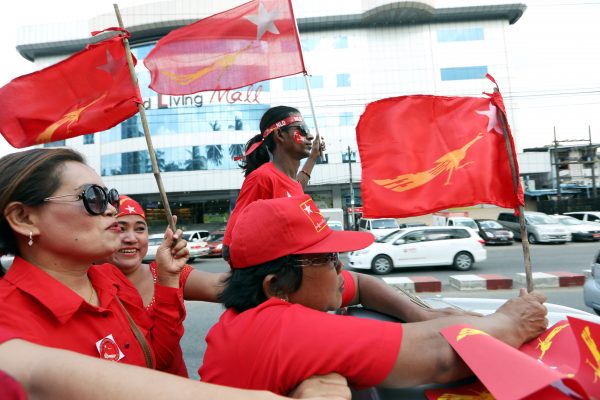Over the past three years, the NLD government has been busy dealing with a wide range of governance issues. The peace process has been particularly difficult and hit a number of obstacles. It is unlikely that it will be able to show progress in this area.
The NLD is instead turning to amending the military-enacted constitution to stimulate electoral momentum. Reforms could potentially affect the military’s role in governance, and so the move is mired in controversy.
To begin with, the NLD raised this legislative motion on the date of the commemoration of U Ko Ni — a lawyer and former advisor to the NLD — who was assassinated on 26 January 2017. Ko Ni was the country’s most vocal advocate for constitutional reform. His death has had a chilling effect on efforts to amend the Constitution.
When the NLD proposed forming a committee to amend the Constitution in the national legislature, the military claimed that they had failed to follow the correct procedure.
All of the military members of parliament refused to vote on the motion as a show of defiance. They have done this on a handful of other occasions, such as when the NLD proposed creating the Office of State Counsellor specifically for Aung San Suu Kyi. The military has also suggested they may not participate in the legislative committee.
Then in early February a group of pro-military protestors held a demonstration in downtown Yangon. The protestors waved two flags — the national flag and a blue flag with a white dove, a symbol of peace. The rally used a mixture of nationalist pride and appeals to peace to suggest that the Constitution should not be changed.
The military’s position has been challenged with a large counter-rally by pro-democratic actors calling for constitutional change.
After the legislature went ahead and approved the committee, the military warned that the ‘essence’ of the Constitution must not be changed. So, what is at the core of the Constitution? Why is it so contested?
There are three essential elements as designed by the military.
First, the military has a constitutional role as the leading body in national governance. This means that the military sits in the legislature and military appointees hold some high-level ministerial positions. The military also exercises informal influence over the government administration and the judiciary.
The military’s role in ‘national politics’ is said to be distinct from its role in ‘party politics’. This distinction means that the military claims to independently oversee the political system though does not technically have its own political party. The Constitution facilitates the military’s monopoly on power.
Second, the Constitution is animated by an ideology developed during the period of direct military rule (post-1988). Known as ‘Our Three Main National Causes’, this ideology supports the role of the military in governance.
This ideology has three elements: non-disintegration of the Union, non-disintegration of national solidarity, and the perpetuation of sovereignty.
The emphasis on non-disintegration represents the rejection and denial of the secessionist and separatist demands of ethnic groups. The non-disintegration of national solidarity is based on a fixed number of official ‘national races’ and the idea that they must not challenge Burman privilege. The reference to sovereignty relates not so much to fears of external interference, but rather to fears of internal disorder and conflict with ethnic armed organisations. The Constitution demands loyalty to these three principles.
The third key element in the Constitution organises the state around the idea of coercive centralism. Coercive centralism describes the relationship between the branches of government and between the Union and the sub-national units. There is a strong culture of coercive cooperation and collaboration among the institutions of the state. The courts cannot act effectively as a check on the power of the executive or legislature and the military remains entirely unaccountable.
These three elements are at the core of the Constitution and form the basis of the ‘military-state’ in Myanmar — the co-existence of military and civilian authorities.
These three principles link to and reinforce the role of the military in leading the country, silencing secessionist claims and promoting an exclusive idea of national races. These principles are repeated consistently and regularly throughout the Constitution.
The NLD fundamentally disagrees with the leading role of the military in governance and its ideology, as well as the structural advantages the Constitution grants to the military.
But this move to form a committee is unlikely to lead to major changes to the essence of the Constitution. It is instead the NLD’s chance to put on the record its demands for constitutional change, a mandate they will no doubt pick up again if they are successful in the 2020 elections.
Melissa Crouch is Associate Professor at the University of New South Wales and is the author of The Constitution of Myanmar: A Contextual Analysis.


Thanks for an informative analysis which demonstrates just how complex and challenging it will be for the NLD to revise the Constitution in Myanmar. The author demonstrates without stating bluntly the extent to which the military holds the levers of power in the country.
Other pundits have described how cautious ASSK has been about challenging the military. Otherwise, does she risk house arrest once again? Would the author of this piece agree with this assessment?